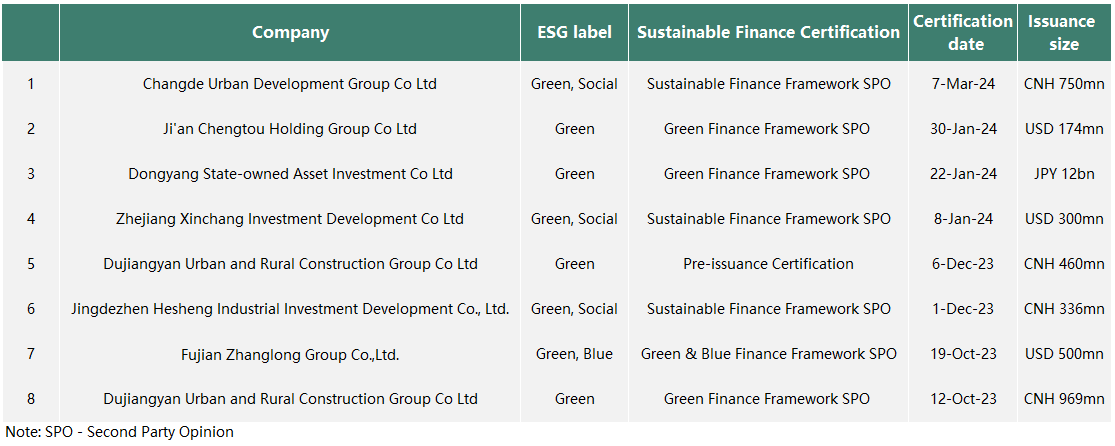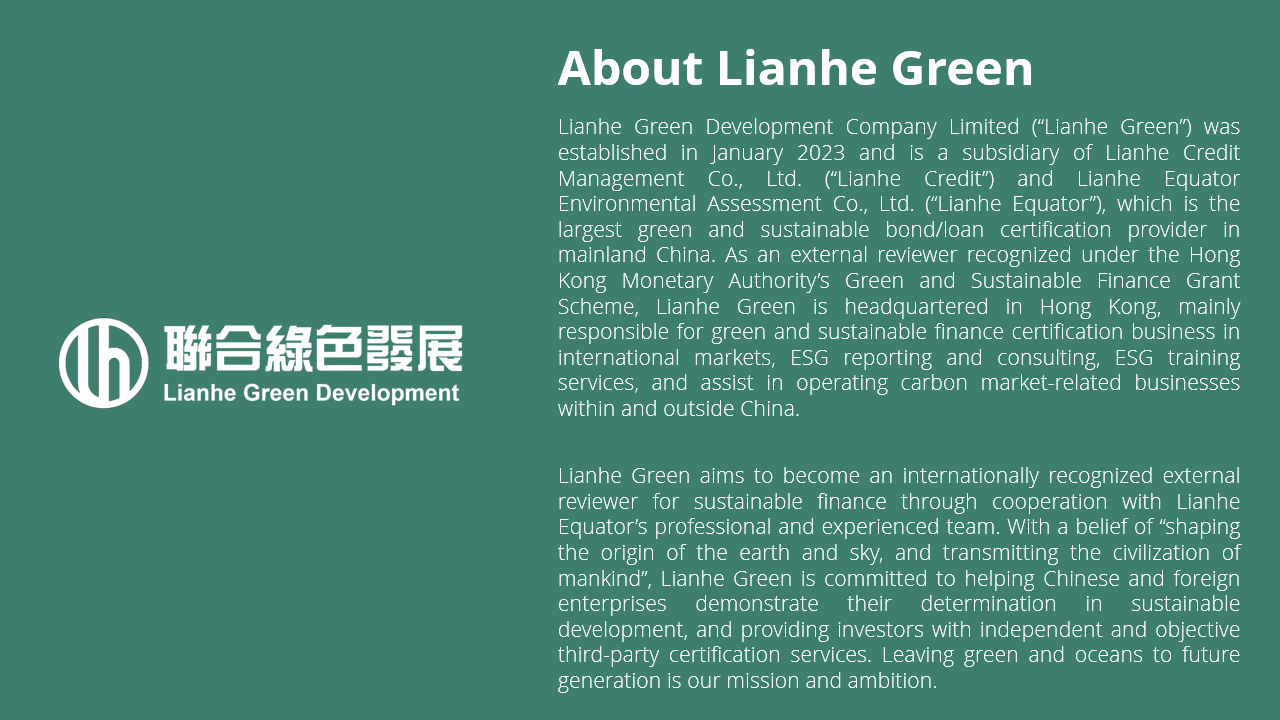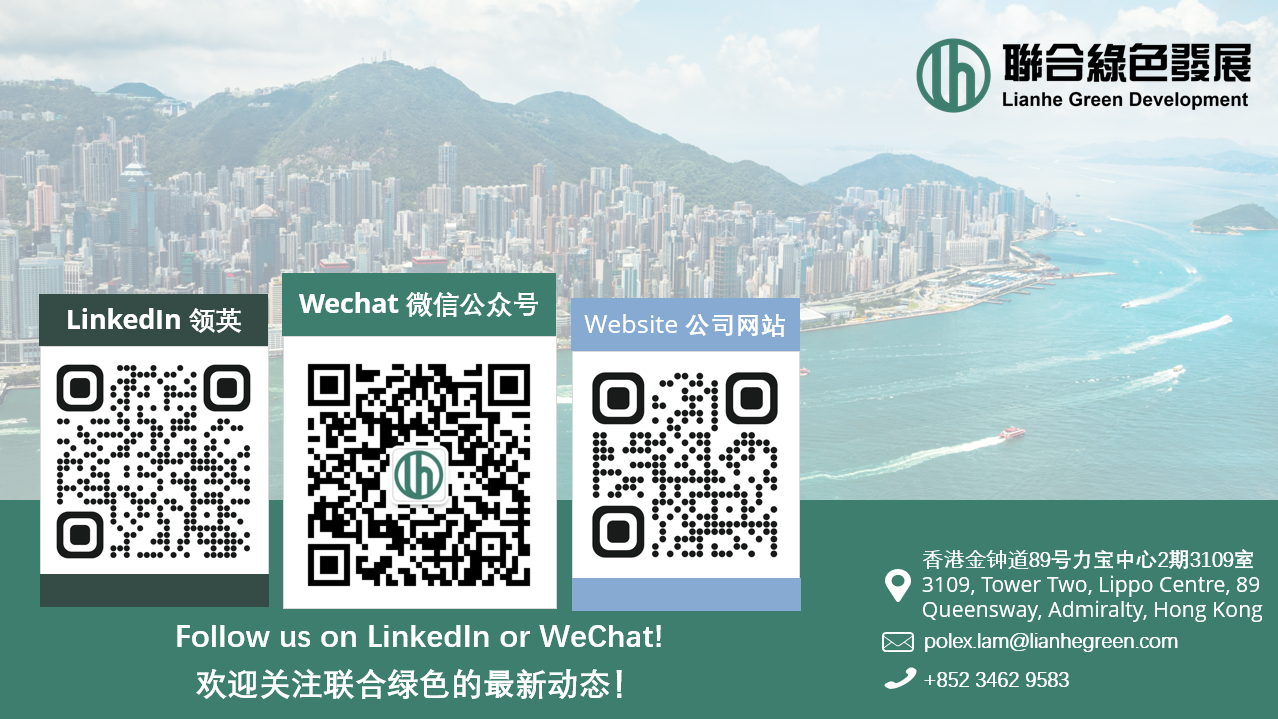 return
return
 current location:Home
current location:Home
 News and Events
News and Events
 News and Events
News and Events
 【ESG News】Global Trends Biweekly Newsletter Issue 5 (2024.4.8-2024.4.19)
【ESG News】Global Trends Biweekly Newsletter Issue 5 (2024.4.8-2024.4.19)
 return
return
 current location:Home
current location:Home
 News and Events
News and Events
 News and Events
News and Events
 【ESG News】Global Trends Biweekly Newsletter Issue 5 (2024.4.8-2024.4.19)
【ESG News】Global Trends Biweekly Newsletter Issue 5 (2024.4.8-2024.4.19)
category:News and EventsRelease time:2024-04-23

Hong Kong China ESG trends
The Hong Kong Stock Exchange issued new climate-related disclosure requirements, fully adopted the ISSB standard and introduced scaling-in measures
On 19 April, the Hong Kong Stock Exchange published conclusions to its consultation on the enhancement of climate-related disclosures under its environmental, social and governance (ESG) framework. In this document, Hong Kong decided to fully adopt the International Sustainability Standards Board’s (ISSB) standards and strengthen the disclosure requirements for climate-related disclosures in accordance with the International Financial Reporting Standard IFRS S2. The two main highlights of the new climate rules include:
• Adopting implementation reliefs: To help issuers meet the challenges of climate reporting, the new regulations introduce a variety of reliefs. For example, reasonable information relief allows issuers to make relevant disclosures using only information that is reasonably available at the reporting date and without undue cost or effort.
• Phased implementation of the new climate rules: Large-cap issuers (i.e., about 120 companies in the Hang Seng Composite LargeCap Index) will be required to disclose under the "comply or explain" principle from fiscal years beginning on or after 1 January 2025, and will be required to make disclosure mandatory from 1 January 2026. Other main board-listed companies are also required to disclose under the " comply or explain " principle starting from 1 January 2025.
This means that main board issuers will need to publish ESG reports under the new climate requirements from January next year, or they will need to provide carefully considered reasons for doing so. Lianhe Green is committed to providing comprehensive advisory services to help companies achieve sustainable development goals in environmental protection, social responsibility and corporate governance. Our services range from writing ESG reports to providing ESG rating reports and improving ESG implementation capabilities and related consulting services. With deep expertise and extensive industry experience, our team can provide our clients with high-quality services to help them find solutions to complex sustainability challenges.
Source: HKEX (https://www.hkex.com.hk/news/regulatory-announcements/2024/240419news?sc_lang=en)
International ESG trends
Japan Releases Proposed IFRS-Based Sustainability Reporting Standards
The Sustainability Standards Board of Japan (SSBJ) announced the release of new exposure drafts for proposed standards for companies to report sustainability and climate-related information, based on the recently released sustainability disclosure standards by the IFRS Foundation’s International Sustainability Standards Board (ISSB).
Source: ESG Today (https://www.esgtoday.com/japan-releases-proposed-ifrs-based-sustainability-reporting-standards/)
SBTi Clarifies that “No Change Has Been Made” to Use of Carbon Credits in Net Zero Plans Following Backlash
The Science Based Targets initiative (SBTi) Board of Trustees clarified that “no changes have been made to SBTi current standards,” following a sharp internal backlash to its recent announcement of plans to update its standard for corporate net zero target setting by extending the use of environmental attribute certificates (EACs), such as emissions reduction credits, to help address Scope 3 emissions.
Source: ESG today (https://www.esgtoday.com/sbti-clarifies-that-no-change-has-been-made-to-use-of-carbon-credits-in-net-zero-plans-following-backlash/)
EU Adopts Rules Requiring All New Buildings to Be Zero Emissions by 2030
The European Council announced today that it has formally adopted the revised Energy Performance of Buildings Directive (EPBD), with new rules aimed at reducing energy use and emissions from buildings across the EU, including targets for all new buildings to be zero emissions by 2030, and to phase out the use of fossil fuels in building heating systems by 2040.
Source: ESG today (https://www.esgtoday.com/eu-adopts-law-requiring-all-new-buildings-to-be-zero-emissions-by-2030/)
Mainland China ESG trends
Seven departments issued the Guiding Opinions on Further Strengthening Financial Support for Green and Low-carbon Development
On October 10, the People's Bank of China, together with the National Development and Reform Commission, the Ministry of Industry and Information Technology, the Ministry of Finance, the Ministry of Ecology and Environment, the General Administration of Financial Supervision and the China Securities Regulatory Commission, issued the "Guiding Opinions on Further Strengthening Financial Support for Green and Low-carbon Development" (the "Guiding Opinions"). The main goal of the Guiding Opinions is to establish a leading international financial support system for green and low-carbon development in the next five years; By 2035, various economic and financial green and low-carbon policies will be coordinated and efficient, the standard system and policy support system for financial support for green and low-carbon development will be more mature, and the functions of resource allocation, risk management and market pricing will be better utilized. Article 7 of the Guiding Opinions: Encourage credit rating agencies to establish and improve rating systems for green financial products, and support credit rating agencies to incorporate environmental, social and governance (ESG) factors into credit rating methods and models.
Source: PBOC (http://camlmac.pbc.gov.cn/goutongjiaoliu/113456/113469/5325946/index.html)
Shanghai, Shenzhen and Beijing Stock Exchanges Release Guidelines on Sustainability Reporting for Listed Companies
On the 12th, Shanghai, Shenzhen and Beijing Stock Exchanges officially issued the "Guidelines on Sustainable Development Reporting of Listed Companies" (hereinafter referred to as the "Guidelines") to further standardise the relevant requirements for the disclosure of sustainable development information of listed companies, guide listed companies to practice the concept of sustainable development, and promote the quality improvement of listed companies. Based on summarizing the current domestic and foreign disclosure systems and excellent practices, the Guidelines refer to national standards and industry norms, actively absorb useful international experience, and build a standardized and unified disclosure system of information for the sustainable development of listed companies in line with China's national conditions.
Source:Shanghai, Shenzhen and Beijing Stock Exchanges (http://www.sse.com.cn/aboutus/mediacenter/hotandd/c/c_20240412_5737864.shtml;https://www.szse.cn/aboutus/trends/news/t20240412_606840.html;https://www.bse.cn/important_news/200021376.html)
China Association for Public Companies (CAPCO) released a series of comparative analysis reports on sustainability disclosure guidelines
On the 12th, CAPCO released a series of comparative analysis reports on sustainability disclosure guidelines. According to the work arrangement of the CSRC and the demands and opinions of listed companies, to facilitate listed companies to better understand and apply the guidelines, help listed companies, especially those listed in multiple exchanges, reduce the cost of information disclosure, and enhance the knowledge and understanding of the guidelines by domestic and foreign investors and relevant entities, CAPCO has organized a comparative analysis of the guidelines and the information disclosure standards and rules issued by foreign institutions such as the International Sustainable Standards Board (ISSB), the Global Reporting Initiative (GRI), and the US Securities and Exchange Commission (SEC) to form a series of reports for the reference of listed companies and market parties.
Source: China Association for Public Companies (https://www.capco.org.cn/xhdt/xhyw/202404/20240415/j_2024041514081700017131614179092271.html)
Sustainable Finance Certification Public and Completed by Lianhe Green



